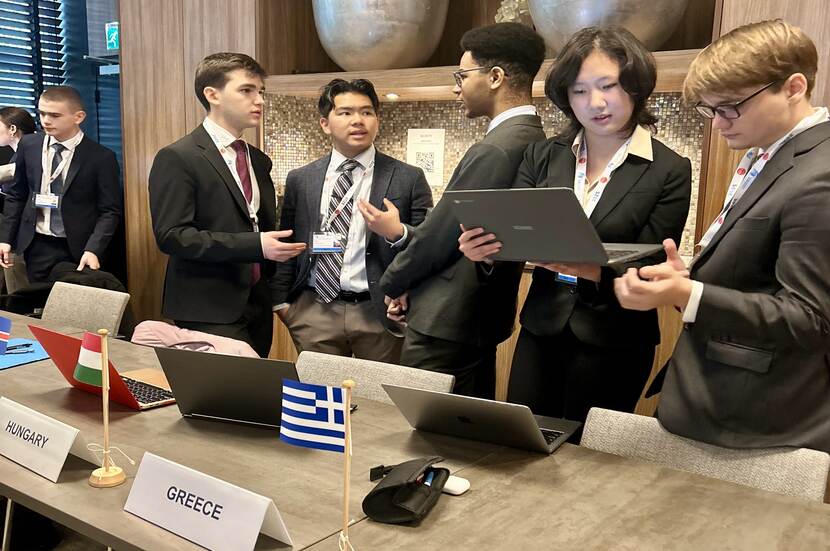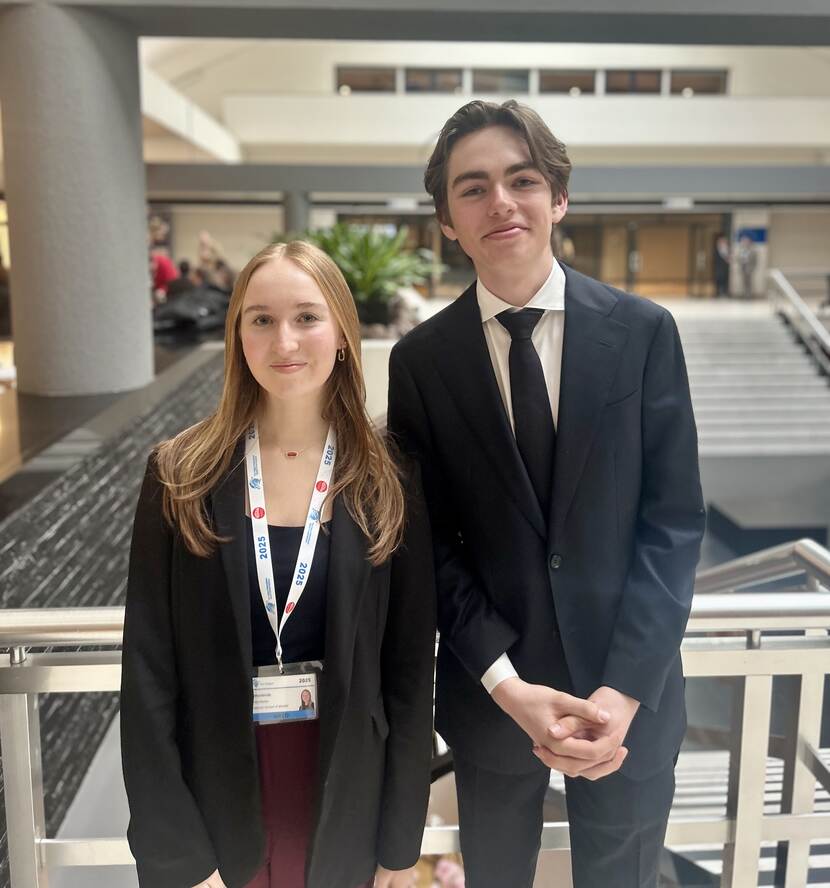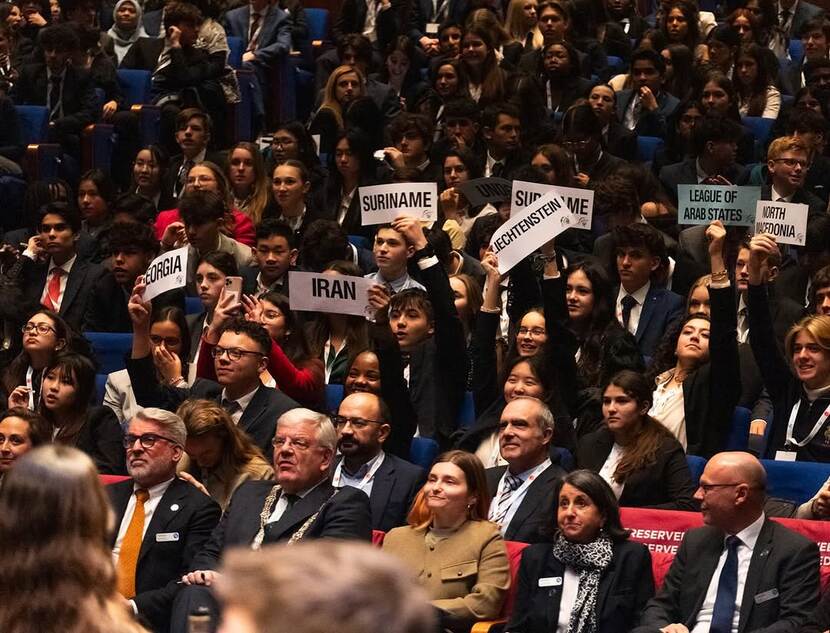Diplomats of tomorrow take over The Hague
Weblogs
At first glance, it could have been a United Nations summit: thousands of delegates in suits hurrying between conference halls, discussing resolutions in formal language. The atmosphere in The Hague’s World Forum feels serious, with global issues on the table. But here’s the twist: these aren’t experienced diplomats or world leaders. They are secondary school students.

This week, The Hague was taken over by the next generation of diplomats. Over 3000 secondary school students from around the world arrived for the 57th annual THIMUN (The Hague International Model United Nations) Conference, ready to debate and negotiate some of the world’s most pressing issues.
But THIMUN 2025 wasn’t just about the UN. With The Hague set to host the NATO Summit in June, the conference introduced a Model NATO Summit, giving students the chance to engage in defence and security negotiations.
From classrooms to conference halls
Representing the world
Before the conference, students drafted a wishlist of countries they hoped to represent. Some time before the conference began, they were officially assigned their roles: sometimes aligning with their preferences, sometimes not.
Among the 3000 participants were Abe Mens of the Lycée Français Vincent van Gogh in the Netherlands and Laney Bartos, a student at the American School of Madrid. Abe was assigned Portugal, while Laney took on the challenge of representing the Netherlands.
'Everyone came ready to work'
Changing perspective
Abe’s motivation was clear: he wanted to understand how politics works and how different countries approach global issues. ‘I wanted to learn to change perspective and see things through other people’s eyes.’
Portugal’s policies were similar to those of the Netherlands, which made preparation easier but Abe didn’t take any shortcuts. He did his research and even asked Portuguese friends for insights on the country’s position on key issues. ‘Talking to them really helped me understand Portugal’s perspective,’ he explained.
During negotiations, Abe pushed to increase the budget for cyber initiatives. ‘We needed at least 20 signatures from different countries to prioritise our clause.’ He was confident he could secure the backing, though he knew it wouldn’t be easy. But what stood out to him most was the level of preparation in the room. ‘Every representative really knew their country’s position. Everyone came ready to work.’

'I want to become a diplomat'
Diplomat in the making
At just 15 years old, Laney already knows where her ambitions lie. ‘I want to be a diplomat,’ she said, and THIMUN was a logical step toward that goal. Representing the Netherlands in The Hague, the international city of Peace and Justice, made the experience even more meaningful for her.
Representing the Netherlands on the global stage was no easy task, but Laney was determined to get it right. She did her research online, went through school materials, and asked a Dutch friend for insights. ‘Understanding the domestic stance of the Netherlands helped me to work out how they approach international issues,’ she explained.
Once negotiations began, the real test started. Cybersecurity was a hot topic. Laney witnessed how different countries approached combating false narratives and improving online safety. ‘It’s such a relevant issue, and hearing how different countries approach it was fascinating.’
'Don't forget to listen to us!'
Message for world leaders
Despite representing different countries, Abe and Laney left THIMUN with the same message for world leaders: ‘Show some empathy and listen to each other.’ In their eyes, diplomacy isn’t just about power. It’s about understanding, compromise, and cooperation. But they had one more request: ‘Don’t forget to listen to us!’ Their generation will inherit today’s global challenges, and they are ready to be part of the conversation.
